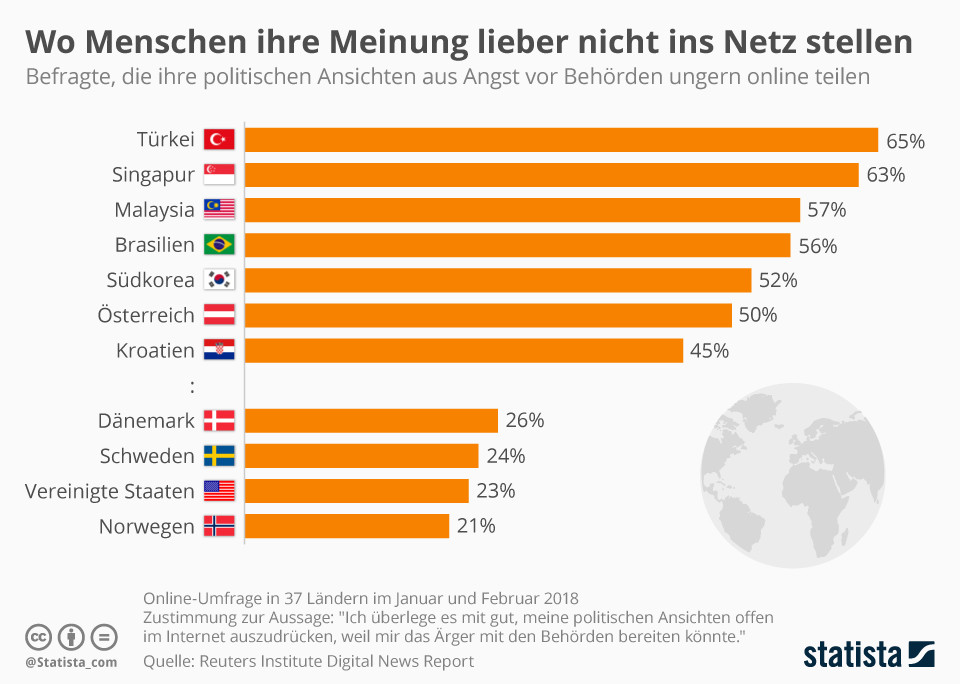+++ Identity protection against data misuse in the digital age +++ Where people prefer not to post their opinions online +++
Identity protection in the digital age
The Internet has now conquered almost all areas of our lives. This has many advantages, but also involves risks. “A major disadvantage is the increasing threat to personal data and thus to one's own identity, the misuse of which can increase.” says Manfred Güllner, founder and managing director of the opinion research institute forsa, which deals with the topic of “identity protection in the digital age” on behalf of Schufa has.
The survey reveals that the majority of people in Germany believe they are well-informed about the dangers of personal data misuse online. Nevertheless, as the Statista graphic shows, at least twelve percent of those surveyed have already fallen victim to identity theft. Victims become aware of the misuse through various means, including inexplicable bills, account activity, or payment reminders.
Most of the time, such cases end lightly - only one in ten victims suffers financial damage. To protect themselves from the misuse of their personal data, the study participants pay attention to the sender of emails and, if necessary, do not open them. What is worrying is that a third do not pay attention to keeping security software up to date. Only a little more than half of those surveyed regularly delete browser history or cookies on their devices.
Where people prefer not to post their opinions online
Social media platforms like Facebook and Twitter have made it easy to share one's opinion publicly with a relatively large audience. However, many users still keep their opinions to themselves. In many countries, they do this because they fear being targeted by government agencies and authorities for expressing their views.
According to this year's Reuters Digital News Report , around 65 percent of respondents in Turkey say they think carefully before posting their opinions online. This is partly due to the fact that Turkish President Recep Tayyip Erdogan has been cracking down hard on any critical expression of opinion since a failed coup attempt – especially against journalists, but also against ordinary citizens.
However, even in countries where freedom of expression is a legally guaranteed fundamental right, some users are rather reserved. This is the case in the USA, where at least 23 percent still exercise restraint.


